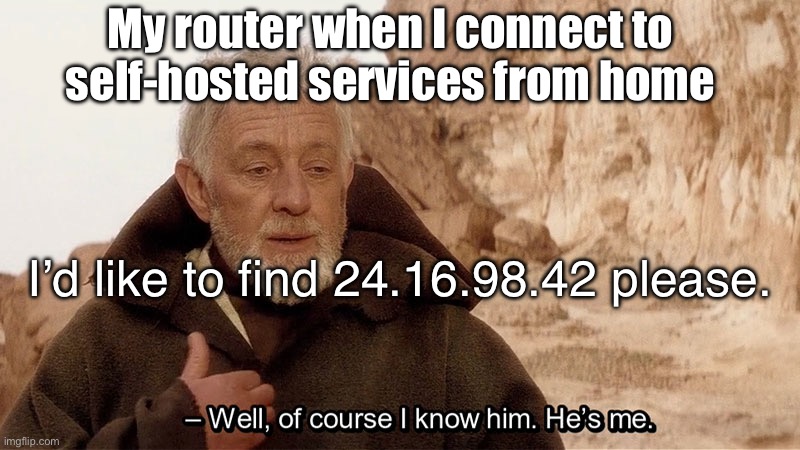EDIT: OP has informed me it is not their personal IP. All is good in the land of Lemmy.
Must have quite a personal network for it to be a Class A address with 131072 subnets and 126 hosts. /s
Also, probably not a good idea to make memes with your real IP.


